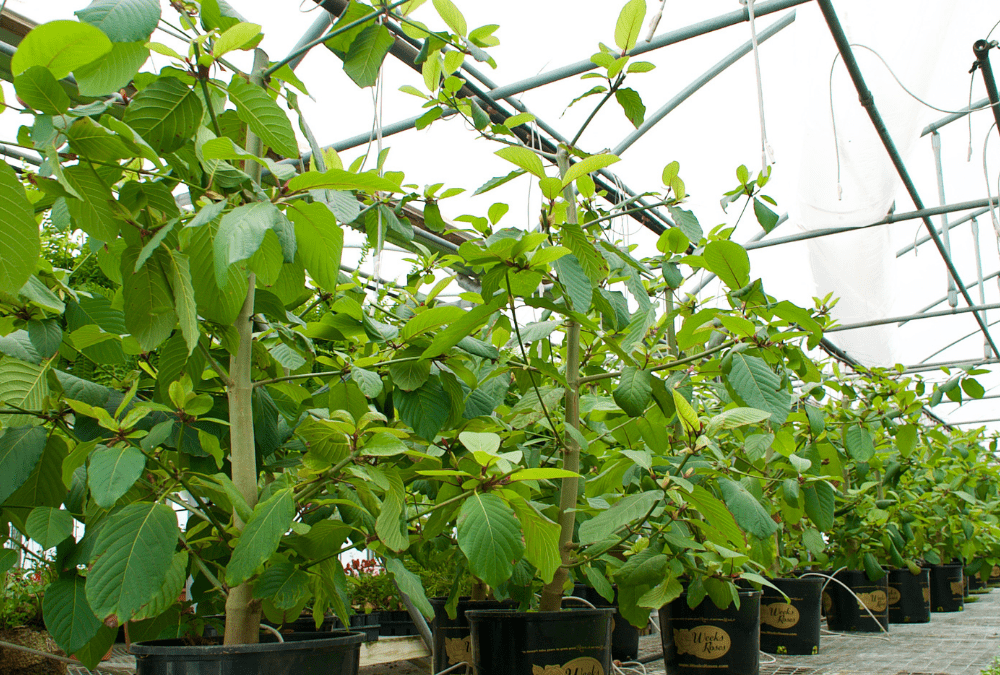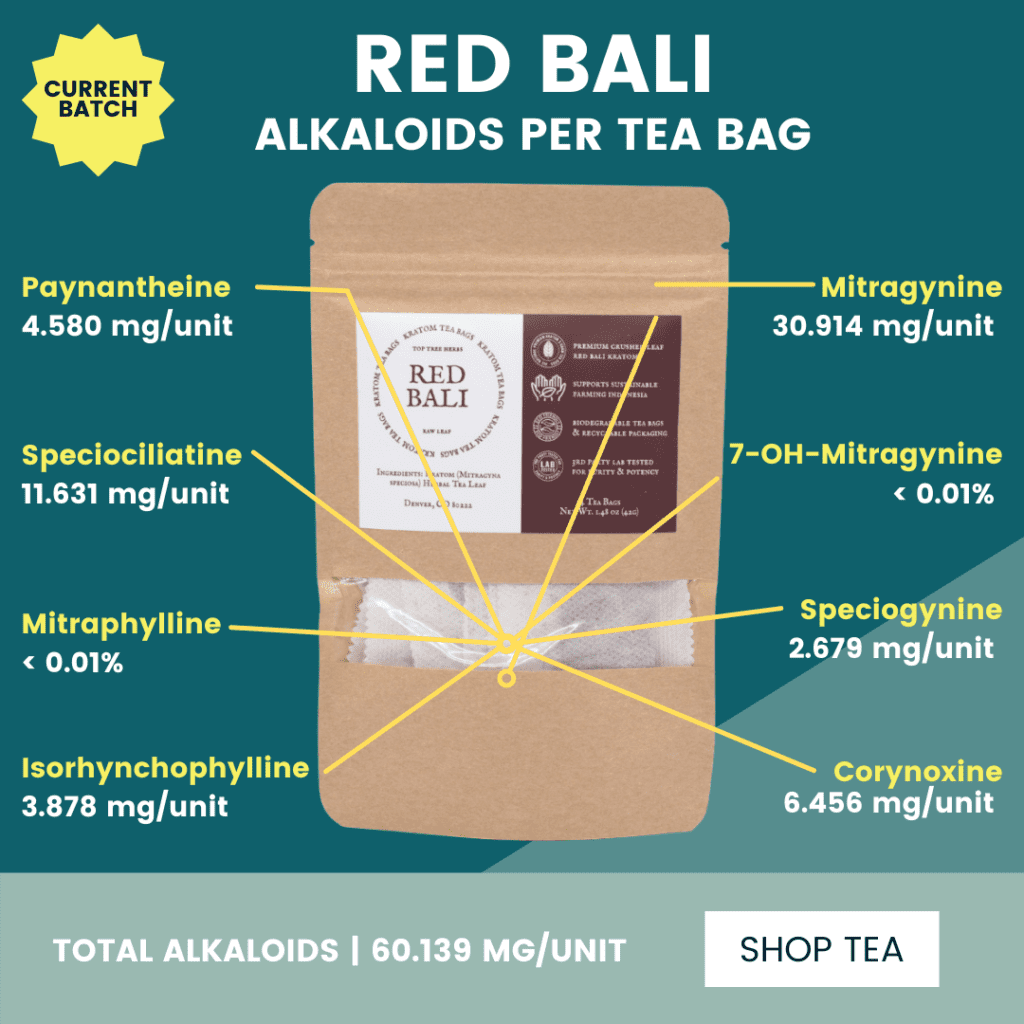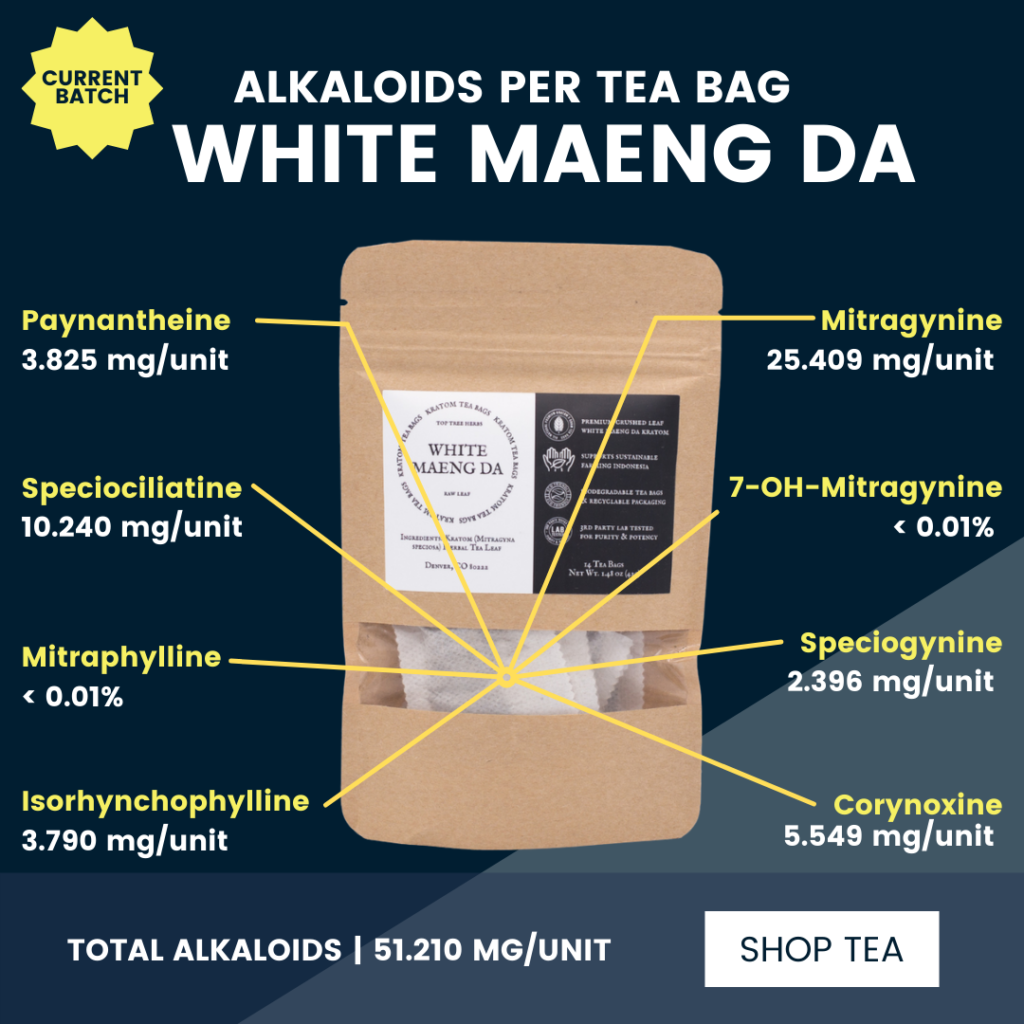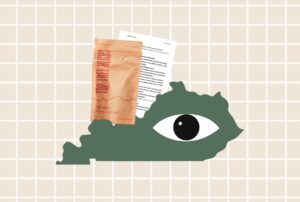The Need For Kratom Science
What are the outstanding questions in kratom science? By “outstanding” we mean to say “unanswered”. In this blog we will first cover how kratom and kratom users have had their freedom withheld from them. From this we go on to demarcate the types of research that should be conducted on kratom. We then briefly discuss what research has been done before getting into what questions are left to answer.
If you’re a kratom advocate, or just a kratom tea drinker, then we hope that this blog helps you contextualize the odd position kratom is in in today’s scientific landscape.
Science Demands Freedom of Thought
We’re all familiar with the famous, revolutionary doctrine of the “separation of church and state.” In the spirit of founding a country focused on individual freedoms, it was important that conversations and democratic movements not be stopped by religious ideology.
When you think about it, it makes sense to keep the stagnant, tradition based practices of the church out of a constitution dedicated to facilitating democratic change and flux. America’s founding fathers recognized from history just how stunted a government under the wing of a religious organization really was. They were barely a hundred years removed from the conflicts surrounding the protestant reformation, and were heavily steeped in enlightenment philosophy.
Central to their democratic republic was the founding notion of the rights of “man.” All citizens were protected in their natural right to decide their own conscience. As such, freedom of speech was codified via the Bill of Rights.
Why Freedom of Thought is our Right
To be a functional and thriving democratic society, they believed that all citizens must be empowered, free individuals. They must be committed to speaking their truth (and voting). Yet, to truly have freedom of speech, one must have freedom of thought. Freedom of speech was philosophically important because debate, or dialectic, was believed to be a means of coming to truth.
If only one side of an argument was ever heard, then no debate, and therefore no reframing of an issue, was possible. Thus, freedom of speech is only valuable outside of a bubble of shared beliefs and perspectives. In short, freedom of speech only has value if people have different beliefs.

Aligned with the principles of freedom of speech, the first amendment also guaranteed the free exercise of one’s personal religious beliefs. The first amendment guarantees the right to speak your mind and act on your values. Regardless of whether your beliefs are aligned with the majority or a minority.
Because of this, the first amendment is one of the most treasured and important features of our democracy. With this amendment, the United States has been free from blasphemy charges and mandated religious practices. (For the most part.)
The United States embraced enlightenment so as not to repeat embarrassing mistakes from the past. Mistakes such as the Catholic Church’s condemnation and persecution of the early scientist Galileo as well as the Puritan witch burnings in Salem.
America’s dedication to freedom is meaningless without individual autonomy of conscience. If Americans are “free,” then they can believe and question what they like without political interference.
Curtailing Science
But, is that actually happening in practice? And, what is “thinking” really? Is it a phenomenon in the head independent of our behavior? Of course not, what one does is motivated by their mind’s intention. We say what is on our mind, else it would be silly to protect freedom of thought by instating a freedom of speech clause. Speech is firmly linked to thought. So freedom of thought must be more than a right to meditate alone.
Going further, our thoughts, beliefs, and desires originate from experience. We think what we think because of our observations, experiments, education, and our unique life experiences. Science is belief based on experimentation.
Granted that the scientific inquiry into the nature of things is interrupted or prohibited by the government, can it be said that we have freedom of thought? Today, scientists are prohibited from examining the nature of a growing list of molecules and botanicals. You cannot ask certain questions. Scientists are censored or prosecuted frequently. It is important to remember that Galileo was persecuted for looking through his telescope and reporting his observations.
Who’s Interfering with Scientific Inquiry?
And so now, through the escalation of the war on drugs, many plants and molecules (which we have little, formal knowledge of) are unilaterally condemned on ideological terms. It’s not hard to research the history of how politically motivated policy has curtailed medical practices. Cannabis was first scheduled to serve as an instrument in racist policing.
Struggling to shed the weight of that legacy, it is only just now gaining traction in the popular and scientific conscience. Until recently, if someone wanted to research cannabis they were restricted in what their studies focused on. Through social pressure or political interference, scientists were frequently denied the right to study cannabis.
As the list of controlled substances grew, so did the amount of illegal scientific questions. Doctors could lose their license recommending the use of one of these substances. How is that different from a blasphemy charge leveled against someone who spoke their conscience despite its conflict with the religious orthodoxy?
And with the recent 180 in official policy regarding the medical potential of cannabis, psychedelics, and dissociatives in the treatment of serious diseases and disorders, why would we continue to think simple research into any of these controlled substances could be bad? So now, within the context of the war on drugs, we are faced with the ironic position of needing a degree of separation of state from science.
Freedom and Risky Behavior
These laws affect more than just scientists and researchers. Dr. Carl Hart’s recent book “Drug Use for Grown Ups” explores this thesis. He postulates that we have the freedom to make individual decisions. A third party, like the government, should not hypocritically restrict our freedom to participate in risky behavior. If we can drive a car or skydive, we should be able to decide if we can put something in our body.
Everything that Top Tree Herbs does is in some way based on Dr. Hart’s philosophy. Our founders, Sam and Soren, met in Dr. Hart’s class in 2018 while attending Columbia. His commitment to the literal interpretation of Jefferson’s famous guarantee “life, liberty, and the pursuit of happiness” inspired us. Firmly committed to evidence based reasoning, we set off to help normalize kratom. As Dr. Hart warned, stigma frequently clouds the science.
Are there Illegal Questions?
Leading into the thesis of this blog, we are going to focus less on what science has already elucidated of the nature of kratom, but more on what it has not. Within the context of curtailed freedom of thought vis-à-vis illegalization of some scientific questions, kratom science has been limited in its scope.
Today, much of the funding provided to US researchers comes from the National Institute on Drug Abuse (NIDA). If not evident by its name, NIDA frequently tints studies’ perspectives towards investigating the negative features of “drugs”.
In many ways, Kratom is different from most of these prohibited compounds. Namely, it is not prohibited. Yet kratom is almost as tough to study as a controlled substance.
In comparison to other dietary ingredients and frequently consumed alkaloids, kratom and it’s 40 some alkaloids have been neglected by researchers. For the 10-15 million kratom users in the US, it can leave them scratching their heads with unanswered questions.
The Tough History of Kratom Research
In short, the reason behind the timidness of IRB approval can be rooted in the DEA and FDA’s intention to schedule kratom and it’s alkaloids in 2016. This planned ban was withdrawn in a historical, grassroots mobilization of kratom advocates.
Since the DEA withdrew it’s listing of kratom from the federal register, the FDA has maintained that the scheduling remained around the corner. Because of this posturing, simple business tools, like credit card processors, are widely unavailable to kratom merchants. Existing financial institutions are worried that they could be retroactively prosecuted for managing kratom-tainted capital if kratom ever was scheduled. Consumers, on the other hand, are faced with an unregulated market, leaving them in the dark about many of their safe options.
Bizarrely, the impending scheduling decisions that some federal agencies touted were revealed to be an unsubstantiated claim. Only recently made public, the Assistant Secretary of the Health and Human Services in 2018, Brett Giroir, penned a letter stating that the new official position was that making kratom illegal would do more harm than good, and that the science suggested it had limited harm potential.
There is now hope that kratom research is gaining traction. In the years since the DEA overturned its decision to schedule it, there has been a resurgence of research into kratom and its alkaloids. In light of the HHS letter recommending further research, there may finally be approval for a human trial.
Existing Kratom Science Overview
With the future looking bright for kratom users, science is in a hurry to catch up to the thriving kratom culture in the US and abroad. To date there have been some relatively small ethnobotanical studies conducted among traditional users in kratom’s natural habitat. There have also been some population surveys in the US that tried to decipher the use pattern of American consumers. These are still quite broad and explorative.
In regards to the chemistry of kratom, we are still largely uncertain how many alkaloids can be present in the leaf. At the moment the consensus seems to be “around 40.” Of those 40, really only mitragynine and 7-OH-Mitragynine have had their pharmacological activity elucidated in rats.
“Similar to the pharmacodynamic data, most of the reported pharmacokinetic information on kratom has focused on the purified, individual alkaloids. The vast majority of these studies only provide information on MTG and 7-HMG.”
(Kamble et al, 2021)
The Two Roads Ahead
As we watch kratom develop in the United States, it seems reasonable to suspect that the research will split down two roads. These paths will require different regulatory bodies, and both have a lot of promise.
Pharmaceutical
One, there will likely be a focus on isolating individual alkaloids to test them for potential drug activity. Once elucidated, research will likely focus on treatment options. Once this is established, we will probably have a new class of pharmaceuticals based on the mitragynine scaffold.
There is a lot of promise in the development of pharmaceuticals based on alkaloids biosynthesized in kratom leaves. For starters, initial studies point at the possibility of a new, high efficacy opioid agonist which could replace the existing morphine family. These, again, early studies also hint at the potential for a safer painkiller, with less of a potential for addiction.
We shouldn’t let the bad taste we have in our mouth from some unsavory politics conducted by Big Pharma close our minds to the potential of improving this widely used class of analgesic drugs. At Columbia University, and companies like Gilgamesh Pharmaceuticals, work is being done already to develop the painkillers of the future. Using natural mitragynine alkaloids as the muse.
Traditional Food Product
Second, there will continue to be research into the whole leaf as a dietary supplement or food ingredient. This is in line with the traditional use of kratom as a food product, i.e. tea. With the current medical model focused on precision and the isolation of individual molecules for drug action, it makes the most sense to not classify kratom tea, and other whole leaf kratom products, as drugs.
Kratom tea transmits a plethora of alkaloids, terpenoids, and phenolic compounds. There is no one molecule that can be said to be responsible for the full effect. Likely, there may even be some nutritional value (albeit probably very little) to the tea. And so kratom tea cannot be considered to have any more drug action than something like chocolate. It makes more sense to treat it as a food item. It is being used as a food item by the tea drinker.
Because it is a food product, kratom tea should be scrutinized with the same level of food-safe related scientific research as do other mass market food items. There needs to be proper expiration date tests, as well as nutritional analysis and caloric measurements. Since the science that needs to be conducted around kratom is food related, it makes the existing prohibitionist blacklisting of kratom research all the more frustrating.
Some Outstanding Kratom Science Questions
At Top Tree, we’re committed to furthering the scientific understanding of kratom in any way we can help. In no specific order, and certainly a list which will grow, these are some questions surrounding kratom tea that we would like elucidated!
- Expiration date – The industry standard for kratom products, now, is one year. It would benefit everyone to have a more systematic review of kratom’s shelf life.
- Nutritional analysis – What kind of vitamins or minerals can we expect to get from a kratom tea? Does it provide calories?
- Minimum quantity of citric acid to hasten the extraction of the plant alkaloids.
- Stability under heat. This is a basic chemistry question. Many food products, e.g. coffee, have been studied rigorously to perfect the brewing technique. Kratom consumers deserve some science which will afford them a better tea drinking experience!
- Extraction time.
- Solubility.
- Enzymatic biotransformation in humans.
- Half-lives.
- Acid lability of various alkaloids.
- Complete alkaloidal COA. To prime the GC-MS, one must first detail the peaks of the alkaloids that one wishes to analyze. This requires the synthesis of numerous, high-purity kratom alkaloids by labs. This is necessary to ensure that different peaks aren’t confused with another. (A peak registers on a GC-MS when it detects something,. You must, however, have prior knowledge of what peaks where to know what it is.)
The American Kratom Association
At the moment, the American Kratom Association (AKA) is pushing for legal protection of kratom in individual states. As states pass the Kratom Consumer Protection Act (KCPA), kratom will be free from the weight of a possible ban. There are two easy ways to help the KCPA get passed in more states. Simply, one can donate to the AKA. Secondly, more science proving the safety of kratom should be conducted. Paradoxically, the lack of a KCPA slows the road to scientific progress.
We all Decide the Future
The future is bright for kratom. If the few forces which stand in the way of kratom research give way, there are enough unanswered questions to power a university for a generation. Science is empowered by freedom of thought. We believe asking questions, and flexing that freedom, will unveil much of what makes us love kratom. And in the process, normalize its use for all of us.








